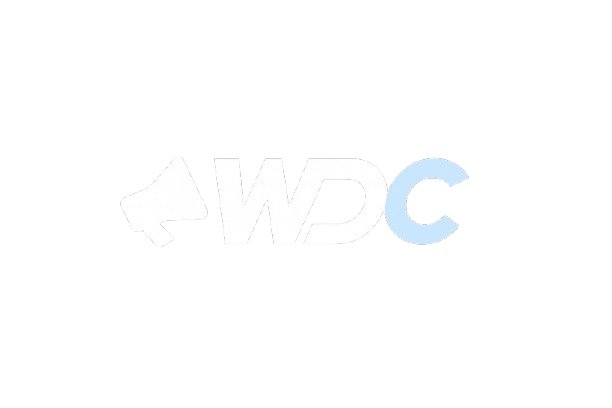With OpenAI’s GPT-5 already reshaping workflows since its 2025 launch, 2026 will be the first full year where marketing agencies experience its full potential. This model goes far beyond text generation—bringing PhD-level reasoning, multimodal integration (text, voice, images, video, and code), and autonomous agent capabilities into everyday marketing operations.
For agencies that adapt, GPT-5 will be a force multiplier—unlocking speed, precision, and personalization at scale. For those who don’t, 2026 could mark the beginning of a slow fade into irrelevance.
At WDC, we’ve been early adopters, integrating GPT-5 into client work since day one. Here’s how we expect it to influence the industry in 2026.
1. Massively Accelerated Creative Production
By 2026, the gap between idea and execution will shrink even further:
- Full-spectrum content creation: Blogs, ad scripts, video voiceovers, email campaigns, social posts, and even imagery—produced in minutes with brand consistency intact.
- Creative iteration at scale: Agencies can instantly test dozens of variations for tone, CTA, and visuals—refining based on live data.
WDC advantage: Our creative teams use GPT-5 as a collaborative partner, not a replacement—ensuring each piece retains a human touch while achieving lightning-fast delivery.
2. Precision-Driven Strategy Through Predictive AI
In 2026, GPT-5 will act less like a tool and more like a strategic co-pilot:
- Behavior forecasting: Using vast data sets, GPT-5 will predict customer actions weeks in advance.
- Hyper-personalization: Dynamic audience segments will evolve in real time, adjusting targeting strategies as customers’ needs shift.
WDC advantage: We’ll leverage these insights to run micro-targeted campaigns—spending less while achieving higher ROAS.
3. Autonomous Campaign Orchestration
This year, GPT-5’s agent mode will make true “hands-off” campaign management mainstream:
- Setting campaign objectives.
- Choosing platforms.
- Writing, designing, and scheduling content.
- Monitoring performance and reallocating budgets—without constant human input.
WDC advantage: We offer autonomous campaign packages for clients who want performance-driven marketing without micromanagement.
4. Real-Time, AI-Generated Client Reports
In 2026, GPT-5 will replace static monthly reports with always-on client dashboards:
- AI-written summaries explaining results in plain language.
- Actionable recommendations pulled directly from live analytics.
- Automatic adaptation to client communication style.
WDC advantage: Our clients won’t just see numbers—they’ll get clear narratives and strategic advice, instantly.
5. AI Ethics, Compliance & Brand Trust
As GPT-5’s influence grows, ethical marketing will become a competitive advantage:
- Ensuring campaigns don’t perpetuate bias or misinformation.
- Disclosing AI usage in creative and targeting.
- Keeping human oversight on all high-impact brand communications.
WDC advantage: We maintain AI Governance Protocols—protecting brand integrity while still innovating aggressively.
6. Market Shakeups: Winners and Losers
By the end of 2026:
- Agencies embracing GPT-5 will offer smarter, cheaper, faster services.
- “Traditional” agencies will find it hard to justify high retainers for slow, manual work.
- Small boutique agencies using GPT-5 will compete with big players on equal footing.
WDC advantage: As an early adopter, we already have a year’s head start in mastering GPT-5 workflows
7. Client Education as a Core Service
GPT-5’s capabilities can overwhelm clients in 2026:
- Many won’t know what’s possible—or how to request it effectively.
- Agencies will shift from being “content vendors” to AI strategy advisors.
WDC advantage: We run client training sessions on AI-powered marketing so they understand the value they’re getting.
Summary Table: GPT-5’s 2026 Impact on Marketing Agencies
| Area | 2026 GPT-5 Capability | WDC’s Opportunity |
|---|---|---|
| Content Creation | Multimodal, rapid iteration | Faster, higher-quality production |
| Strategy & Insights | Real-time predictive personalization | Smarter targeting, maximized ROI |
| Campaign Management | Fully autonomous workflows | AI-driven “set it and scale it” services |
| Client Reporting | Instant narrative reports & live dashboards | More transparency and value perception |
| Ethics & Compliance | Brand-safe AI deployment | Trust-based competitive advantage |
| Market Positioning | Level playing field between small & large agencies | WDC stays ahead as an AI-first agency |
| Client Education | AI literacy as a service | Stronger client retention & satisfaction |
Conclusion
2026 will be the year GPT-5 moves from novelty to necessity in marketing. Agencies that fully embrace it will operate faster, smarter, and more profitably—while clients demand more transparency, personalization, and measurable results.
For WDC, GPT-5 isn’t replacing our team—it’s extending what we can deliver. With a commitment to ethical AI, strategic creativity, and client education, we’re ready to make 2026 the most innovative year in marketing yet.
FAQs
1. How will GPT-5 be different in 2026 compared to 2025?
By 2026, integration with ad platforms, CRMs, and analytics tools will be seamless. GPT-5 will run campaigns autonomously while learning from cross-channel data in real time.
2. Will AI completely replace human marketers?
No—AI will automate execution and analysis, but humans will still be needed for brand voice direction, ethics oversight, and high-level strategy.
3. Is it expensive to adopt GPT-5?
Costs are falling as GPT-5 becomes embedded in mainstream marketing platforms. For WDC clients, it’s included in service packages.
4. What’s the biggest risk of using GPT-5 in marketing?
Over-reliance without oversight. Poorly monitored AI can drift off-brand or target the wrong audience segments.
5. How can small businesses benefit in 2026?
GPT-5 will level the playing field—allowing small businesses to access the same strategic and creative power as large corporations at a fraction of the cost.

